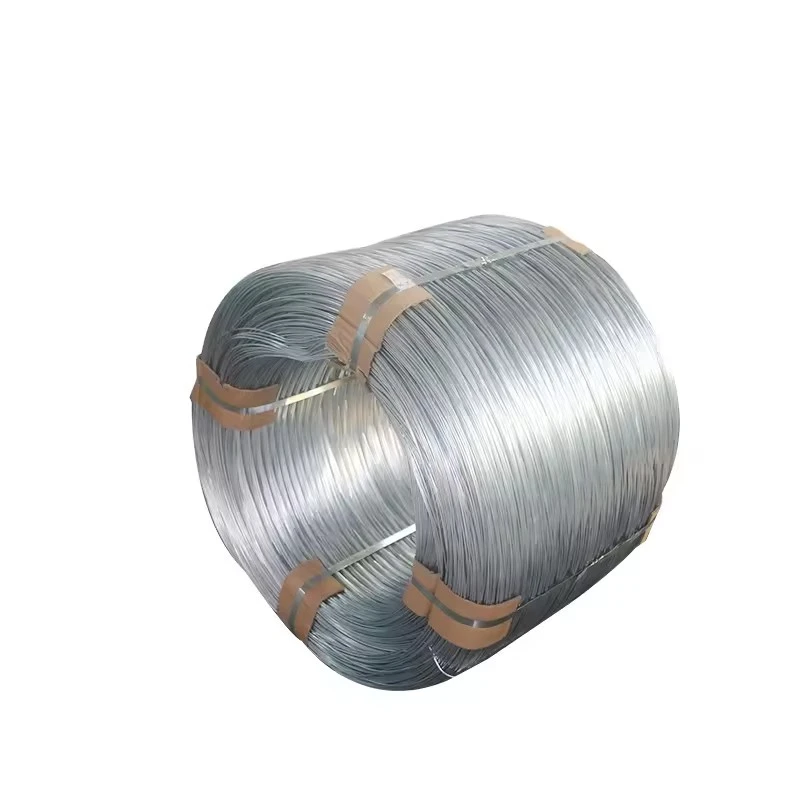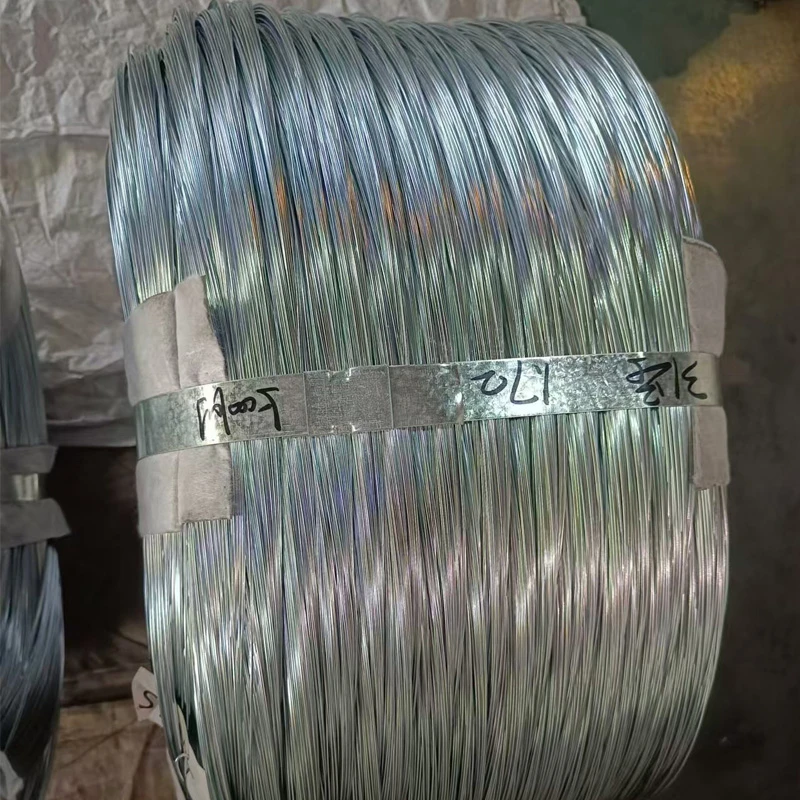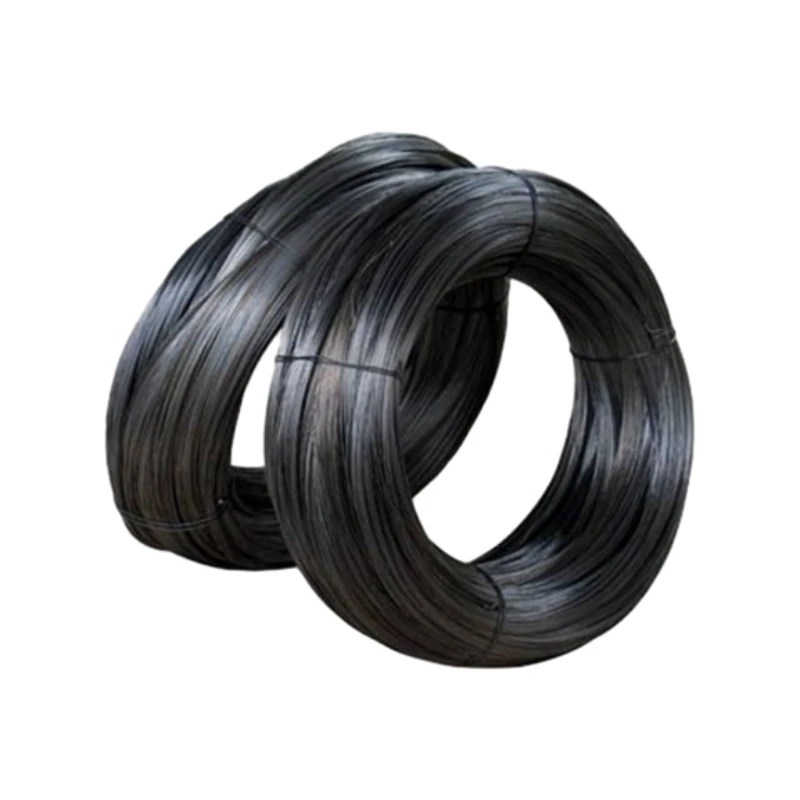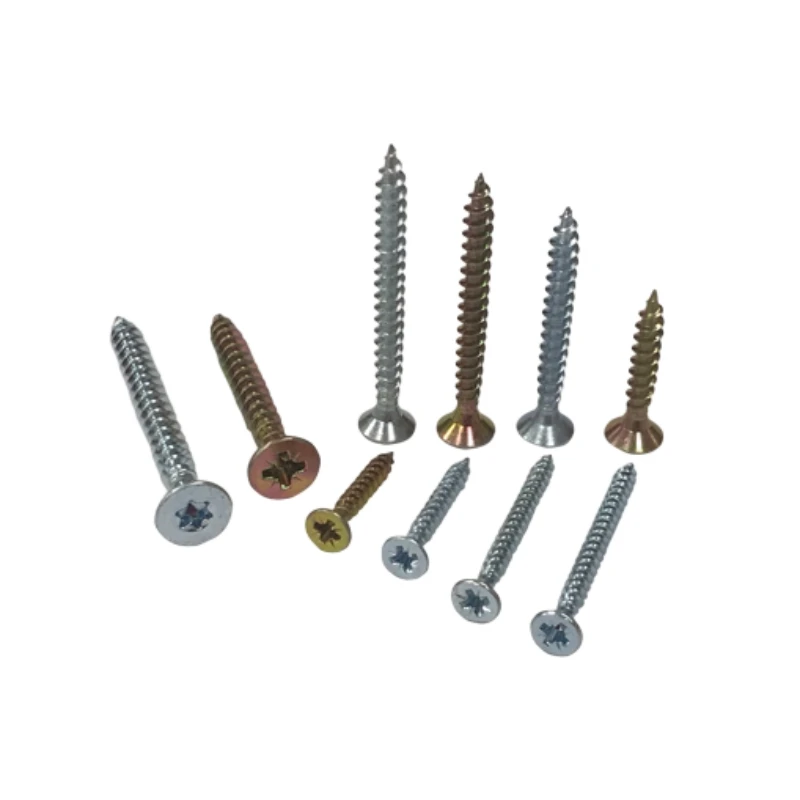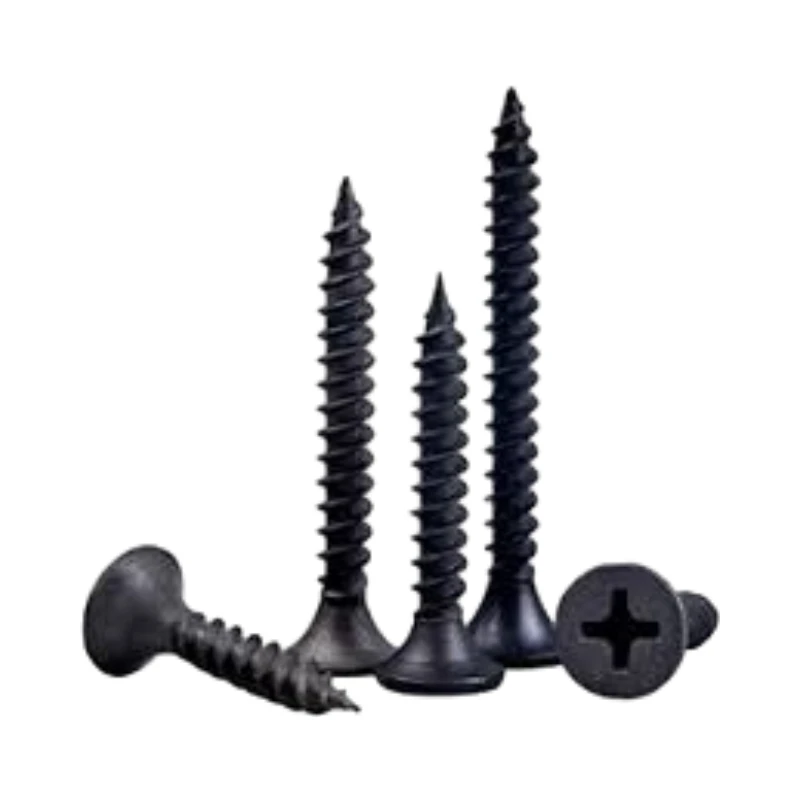
Talk With Us
+86-13601661296
Email Address
admin@sxjbradnail.comHigh-Quality 1/2" Crown 20 Gauge Staples for Secure Fastening
Driving Efficiency with Precision Fasteners in B2B Applications
In the intricate landscape of B2B manufacturing and assembly, the integrity of a finished product often hinges on the quality of its smallest components. Among these, 1 2 crown 20 gauge staples stand out as essential fasteners, crucial for applications demanding both strength and minimal material impact. Specifically, the 20 Gauge 11.2mm Crown 10J Series Fine Wire Staple, designed for exceptional holding power and seamless integration, represents a critical element in industries ranging from furniture and cabinetry to packaging and upholstery. This comprehensive guide delves into the technical aspects, manufacturing precision, and versatile applications of these critical fastening solutions, providing insights for procurement managers and technical professionals seeking to optimize their supply chains and product quality.
The demand for precise and durable fasteners continues to grow, driven by evolving material technologies and stricter performance requirements across various sectors. The fine wire design of the 10J Series, combined with its specific crown width and gauge, ensures secure fastening without splitting delicate materials, offering a balance of robust hold and aesthetic finish. Understanding the nuanced specifications and potential applications of these staples is paramount for businesses aiming to enhance operational efficiency and product longevity in highly competitive markets. This article will explore how leveraging advanced staple technology contributes to superior end-products and streamlined manufacturing processes.
Understanding 20 Gauge Staples: Technical Specifications and Industry Standards
The specification "1 2 crown 20 gauge staples" refers to key dimensional properties critical for fastener performance. "20 gauge" indicates the wire diameter, a metric within the American Wire Gauge (AWG) system, where a higher gauge number corresponds to a finer wire. A 20-gauge wire typically measures approximately 0.0348 inches (0.884 mm) in diameter, making it ideal for applications where discretion and minimal material displacement are valued. The "1/2 crown" denotes the width of the staple's top section, spanning across the two legs. For the 20 Gauge 11.2mm Crown 10J Series Fine Wire Staple, the 11.2mm crown (approximately 7/16 inch or very close to 1/2 inch) ensures broad surface area contact for superior holding power without tearing or damaging the substrate.
These staples are engineered to meet stringent industry standards, ensuring consistent quality and performance. Manufacturers typically adhere to ISO 9001 for quality management systems, guaranteeing that every batch of 20 gauge 1/4 staples or other sizes undergoes rigorous quality control. Material selection is paramount; common materials include galvanized steel for corrosion resistance, stainless steel for enhanced durability in harsh environments, and sometimes aluminum for lighter applications. Surface treatments like galvanization significantly extend the staple's lifespan by preventing rust and degradation, making them suitable for long-term use in various conditions, from interior upholstery to outdoor furniture framing.
Below is a table outlining common specifications for fine wire staples, including typical leg lengths that pair with a 20-gauge wire and 1/2 crown for optimal application versatility. This data helps in selecting the appropriate staple for specific material thicknesses and holding requirements, highlighting the flexibility offered by the 10J Series.
| Parameter | Description | Value/Range |
|---|---|---|
| Wire Gauge | Wire diameter, defining strength and discreetness | 20 Gauge (approx. 0.884 mm / 0.0348 in) |
| Crown Width | External width of the staple's crown | 11.2mm (approx. 7/16 inch or 0.441 in) |
| Leg Lengths | Length of the staple's legs, impacting penetration depth | 6mm to 25mm (1/4 in to 1 in) |
| Material | Composition for durability and specific environment | Galvanized Steel, Stainless Steel (304, 316), Copper-plated |
| Point Type | Shape of the staple tips for penetration | Chisel Point, Divergent Point |
| Tensile Strength | Resistance to breaking under tension | Varies by material (e.g., 600-900 MPa for galvanized steel) |
The Precision Manufacturing Process of Fine Wire Staples
The production of high-quality 20 gauge 3/8 crown staples, especially the 10J Series fine wire variants, is a sophisticated process that begins with selecting premium-grade steel wire rods. The initial phase involves wire drawing, where rods are systematically pulled through progressively smaller dies to achieve the precise 20-gauge diameter. This mechanical process enhances the wire's tensile strength and surface finish, crucial for staple durability. Following drawing, the wire undergoes annealing, a heat treatment that optimizes its ductility, making it pliable enough for the subsequent forming steps without compromising its strength.
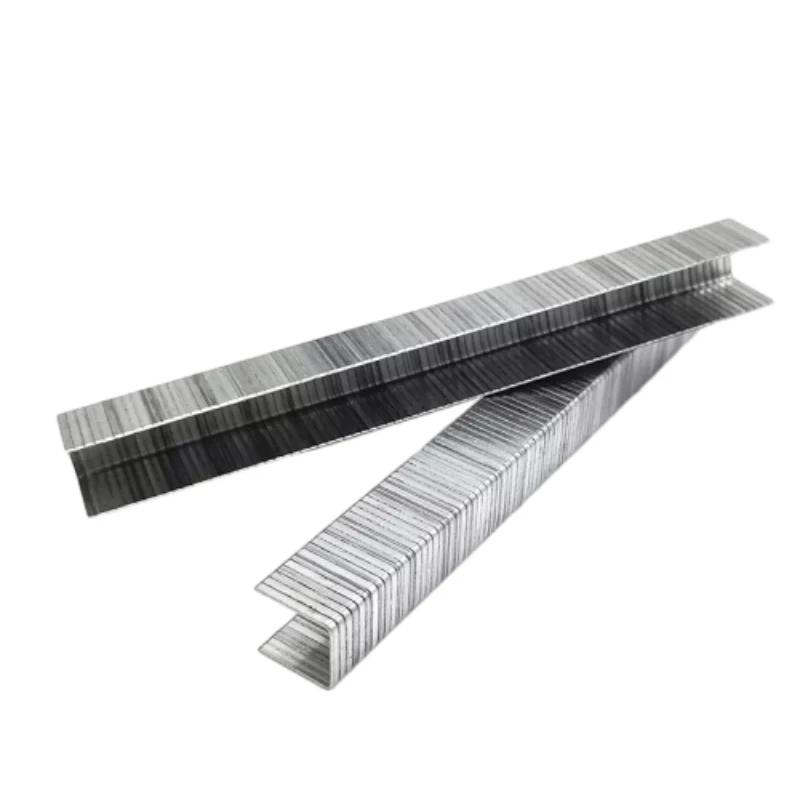
Next, the wire undergoes surface treatment, commonly galvanization, where it's coated with a layer of zinc. This process, often performed through hot-dipping or electroplating, provides exceptional corrosion resistance, extending the staple's service life, particularly in humid or outdoor environments. For applications requiring superior resistance to specific chemicals or highly corrosive conditions, stainless steel wire (e.g., SUS304 or SUS316) is used, eliminating the need for galvanization. After coating, the wire is fed into high-speed staple forming machines. These machines precisely cut, bend, and bond the wire segments together, creating the distinct U-shape with the specified 11.2mm crown and leg length.
Quality control is integrated throughout the manufacturing process, from raw material inspection to final product verification. Adherence to standards like ISO 9001 ensures dimensional accuracy, material integrity, and coating consistency. Each batch of 1 2 crown 20 gauge staples undergoes tensile strength tests, shear tests, and corrosion resistance tests to guarantee optimal performance under various operational stresses. This meticulous process ensures that every staple delivers reliable fastening, contributing to the overall quality and longevity of the end-product. The precise engineering minimizes material waste and ensures compatibility with high-speed automated stapling equipment, a critical factor for B2B efficiency.
Key Applications and Performance Advantages
The versatility of 1 2 crown 20 gauge staples makes them indispensable across a wide array of industries. In furniture manufacturing and upholstery, their fine wire profile prevents splitting delicate fabrics and wood veneers, providing a secure yet discreet hold. For cabinet makers, these staples are ideal for attaching backing panels, drawer bottoms, and decorative trim, where a strong, almost invisible fastener is desired. In the construction sector, specifically for lightweight framing, insulation, and house wrap installation, the 20-gauge staple offers sufficient holding power without over-penetrating materials, ensuring structural integrity and material preservation.
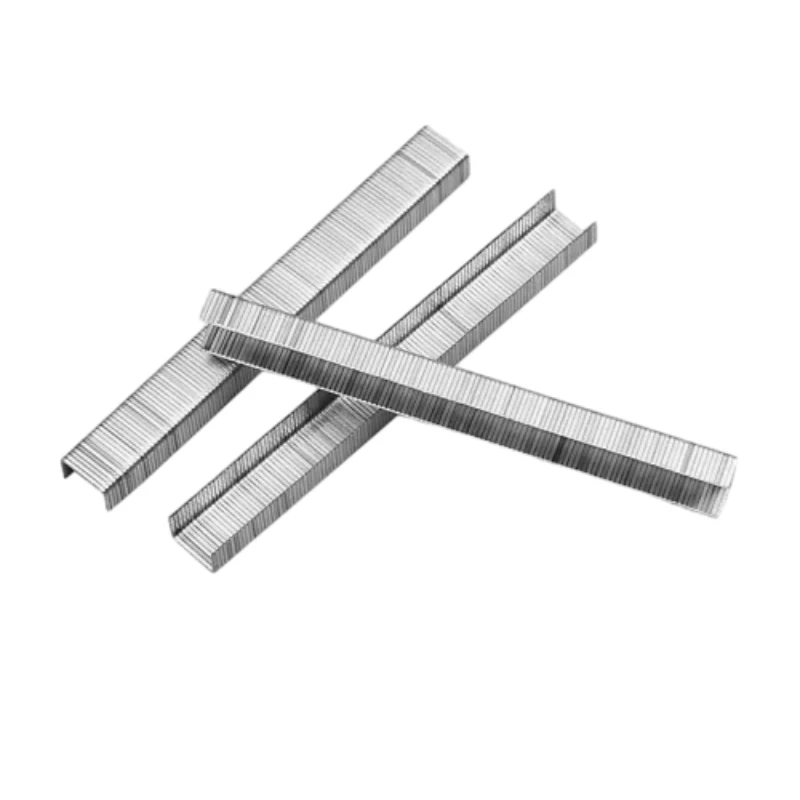
Beyond these, 20 gauge 1/4 staples and other leg lengths find extensive use in packaging, particularly for carton closing and securing internal protective materials. Their precision and ease of use with pneumatic staplers significantly boost production line efficiency. Key technical advantages include their high pull-out resistance, especially when combined with a divergent point design that spreads the staple legs upon entry, creating a stronger grip within the material. The galvanized coating ensures superior corrosion resistance, crucial for products exposed to varying environmental conditions, thereby extending the product's lifespan and reducing warranty claims. This robust performance ensures long-term product integrity and customer satisfaction.
Furthermore, the controlled penetration depth achievable with fine wire staples prevents material blow-through, which is particularly vital for delicate or thin substrates. This precision reduces material damage and rework, translating into significant cost savings and improved production yields. The 10J Series, with its consistent dimensions and reliable material properties, is engineered to seamlessly integrate with automated fastening systems, minimizing jams and maximizing uptime in high-volume manufacturing environments. This operational reliability is a direct benefit of adherence to strict manufacturing tolerances and quality control protocols.
Choosing the Right Supplier: Quality, Customization, and Support
Selecting a supplier for 1 2 crown 20 gauge staples requires a thorough evaluation of their capabilities, beyond just product specifications. A reputable manufacturer differentiates itself through consistent product quality, robust testing procedures, and the ability to offer customized solutions. Look for certifications such as ISO 9001, which signifies a commitment to international quality management standards. Suppliers with extensive experience in the fastener industry, demonstrating a track record of reliability and innovation, are preferable partners. Their engineering expertise ensures that staples are not only compliant with industry norms but also optimized for specific application performance.
Beyond standard offerings, the capacity for customization is a significant advantage. While the 20 Gauge 11.2mm Crown 10J Series Fine Wire Staple is a widely used product, some unique applications may necessitate specific leg lengths, material alloys (e.g., marine-grade stainless steel for extreme corrosion resistance), or even specialized coatings for enhanced grip or chemical inertness. A supplier's willingness and technical ability to develop bespoke solutions, coupled with prompt sample delivery and rigorous testing, can be a game-changer for businesses facing specialized fastening challenges. This collaborative approach can lead to optimized production processes and superior final products.
Furthermore, comprehensive customer support, including technical assistance, efficient order processing, and reliable logistics, are hallmarks of a top-tier supplier. A clear delivery schedule, transparent pricing, and responsive after-sales service build trust and streamline procurement operations. Companies that prioritize client relationships often provide dedicated account managers and technical support teams to assist with product selection, troubleshoot issues, and ensure smooth integration into existing manufacturing lines. This level of support minimizes downtime and maximizes operational continuity for B2B clients relying on consistent fastener supply.
Real-World Applications and Success Stories
The practical application of 20 gauge 3/8 crown staples and their 1/2 crown counterparts illustrates their impact on product quality and manufacturing efficiency. Consider a large-scale furniture manufacturer specializing in upholstered sofas. By switching to the 20 Gauge 11.2mm Crown 10J Series Fine Wire Staple, they observed a significant reduction in fabric tears and frame splitting, which previously led to costly reworks and material waste. The precise penetration of these staples allowed for faster application speeds, boosting overall production by 15% and reducing manual touch-ups by 20%, directly improving their profit margins and delivery timelines.
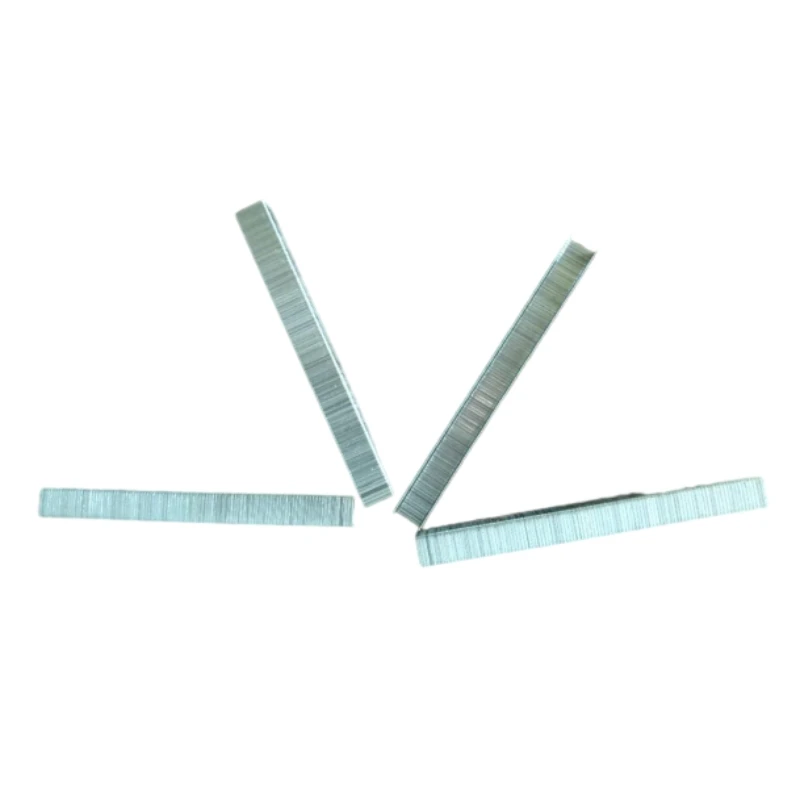
Another compelling example comes from the packaging industry. A major e-commerce fulfillment center, handling thousands of packages daily, implemented automated carton stapling machines utilizing bulk reels of 1 2 crown 20 gauge staples. The consistency and reliable feeding of these staples drastically reduced machine jams, leading to an impressive 30% increase in throughput on their packaging lines. The secure closure provided by the staples also minimized damage during transit, resulting in a 5% decrease in customer complaints related to package integrity. This demonstrates how even small components can have a cascading positive effect on an entire operational workflow and customer satisfaction.
These success stories underscore the tangible benefits of investing in high-quality fine wire staples. Beyond the initial cost, the long-term savings derived from reduced material waste, increased production efficiency, lower maintenance costs for stapling equipment, and improved product durability often provide a substantial return on investment. Collaborating with a reliable supplier that consistently delivers products meeting stringent specifications is therefore not just a procurement decision, but a strategic investment in overall business performance and competitive advantage.
Frequently Asked Questions (FAQ)
Q1: What are the primary advantages of using 20 gauge fine wire staples over heavier gauge alternatives?
A1: 20-gauge fine wire staples offer minimal material displacement, making them ideal for delicate materials like fabrics, thin veneers, and composites where larger fasteners might cause splitting or visible damage. Their smaller entry hole provides a cleaner finish and often better aesthetics, while still delivering significant holding power when paired with an appropriate leg length and crown.
Q2: How does the 11.2mm crown (approximately 1/2 inch) of the 10J Series impact its performance?
A2: The 11.2mm crown width provides a larger surface area contact, distributing the holding force more effectively. This reduces the risk of pull-through, especially in softer materials, and enhances the overall stability of the fastened joint. It also offers compatibility with a wide range of standard staple guns and pneumatic tools, ensuring broad usability.
Q3: What quality assurance measures should I look for in a staple supplier?
A3: Key indicators of a high-quality supplier include ISO 9001 certification, comprehensive material testing (e.g., tensile strength, hardness), dimensional accuracy checks, and corrosion resistance testing. Transparency in their manufacturing process and the availability of product data sheets also signify a commitment to quality. Reputable suppliers typically offer robust warranty policies on their products.
Q4: Can these staples be customized for specific industrial applications?
A4: Yes, a professional manufacturer should be able to offer customization options. This includes varying leg lengths, alternative materials (e.g., different grades of stainless steel or specific alloys for unique environments), and specialized coatings for enhanced grip, specific colors, or chemical resistance. Discussing your specific requirements with the supplier's technical team is recommended to explore feasible customized solutions.
Quality Assurance and Customer Commitment
For B2B clients, consistency in product delivery and unwavering quality are paramount. Reputable manufacturers of 1 2 crown 20 gauge staples like the 10J Series prioritize a stringent quality management system that spans from raw material sourcing to final packaging. This includes ISO-certified processes, ensuring every staple adheres to precise dimensional tolerances and material specifications. Batch testing for tensile strength, shear resistance, and corrosion performance is standard, guaranteeing that the staples perform reliably under demanding industrial conditions, minimizing potential defects and costly production stoppages.
Commitment to customer satisfaction extends beyond product quality to encompass reliable logistics and responsive support. Typical delivery lead times are communicated clearly upfront, ranging from 2-4 weeks for standard orders, with expedited options available for urgent requirements. Comprehensive warranty policies usually cover manufacturing defects and performance issues, providing peace of mind. Furthermore, dedicated customer support teams are available to address technical inquiries, assist with product selection, and provide post-sales assistance, ensuring a smooth and efficient procurement experience for industrial partners seeking to optimize their fastening solutions.
Conclusion
The 20 Gauge 11.2mm Crown 10J Series Fine Wire Staple, often sought as 1 2 crown 20 gauge staples, embodies precision engineering and reliable performance crucial for modern B2B manufacturing. From their meticulous production using high-grade materials and advanced forming techniques to their broad applicability across furniture, packaging, and construction, these fasteners play a vital role in enhancing product integrity and operational efficiency. By understanding their technical specifications, leveraging their advantages in specific applications, and partnering with suppliers committed to quality and customization, businesses can significantly elevate their competitive edge.
Investing in superior fastening solutions is not merely a purchasing decision; it is a strategic step towards building more durable products, streamlining production processes, and ultimately, fostering greater customer satisfaction. The continued evolution of fine wire staple technology ensures that industries will continue to benefit from increasingly efficient, robust, and discreet fastening capabilities, adapting to the ever-demanding requirements of global markets.
References
- International Organization for Standardization. ISO 9001:2015 Quality management systems — Requirements. (Referenced for quality management standards).
- ASTM International. Various standards related to steel wire and fasteners. (Referenced for material and testing specifications).
- Technical publications on fastener technology and material science from leading engineering journals. (General reference for manufacturing processes and performance).
- Industry reports and market analyses on the global fastener market and its segments. (General reference for market trends and applications).
-
20 Gauge 3/16 Crown Staples: Premium Fasteners for UpholsteryNewsAug.27,2025
-
90 Series Staples: Premium 18ga Narrow Crown FastenersNewsAug.26,2025
-
Precision 90 Series Staples - 18GA Narrow Crown, 10-38mmNewsAug.21,2025
-
Secure & Strong Fine Thread Drywall Screws for DrywallNewsAug.19,2025
-
21 Gauge 1/2 Inch Crown 84 Series Fine Wire Staple-Baoding Yongweichangsheng Metal Produce Co., Ltd.|Precision Engineering&Corrosion ResistanceNewsAug.18,2025
-
21 Gauge 1/2 Inch Crown 84 Series Fine Wire Staple - Baoding Yongweichangsheng Metal Produce Co., Ltd.NewsAug.18,2025

